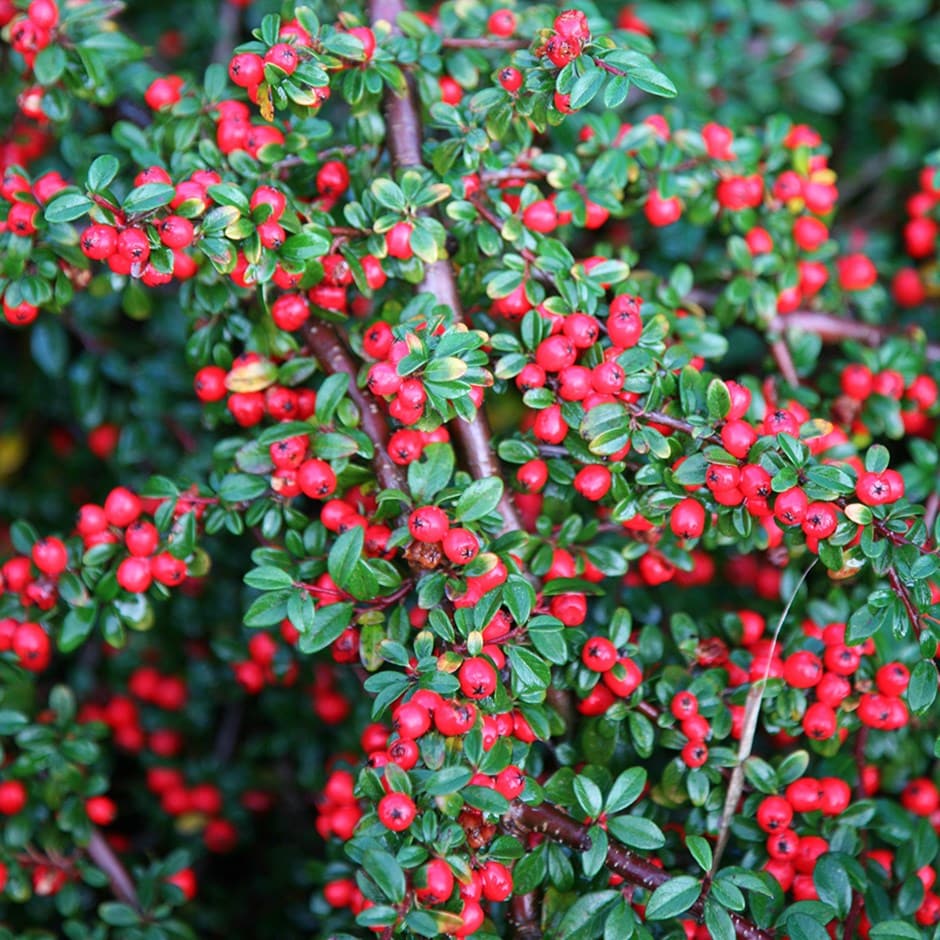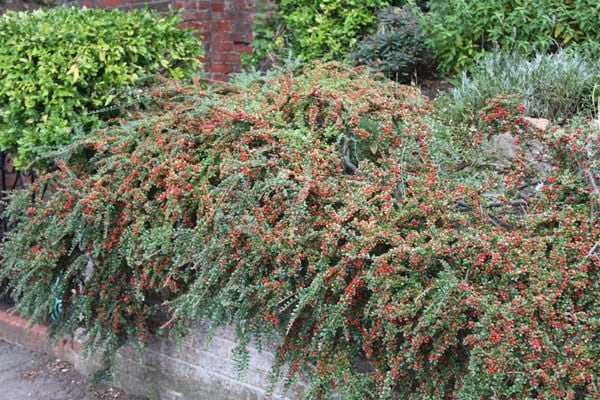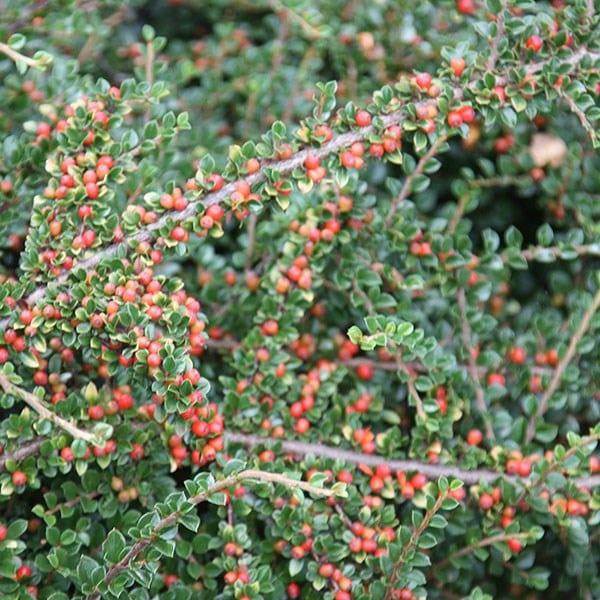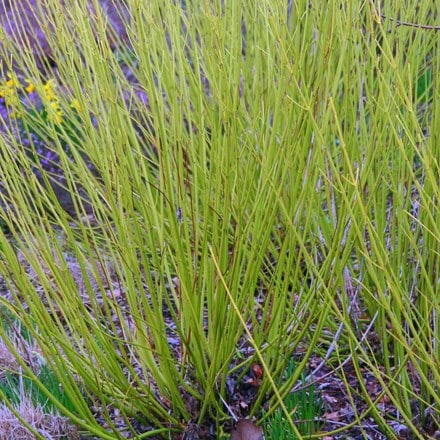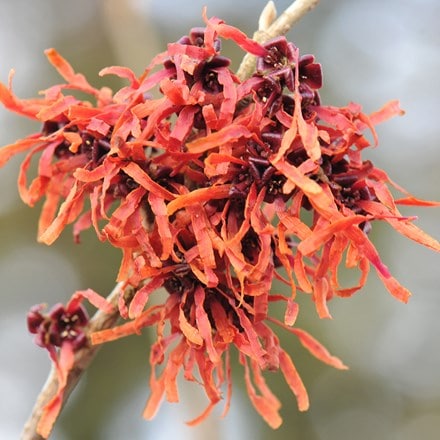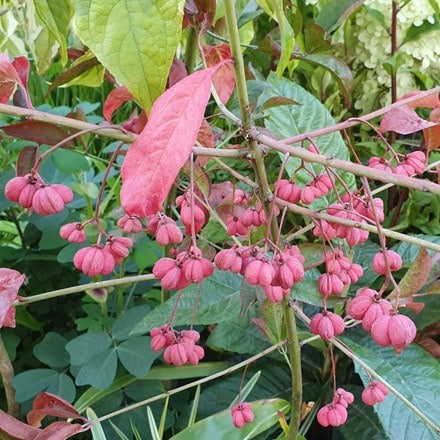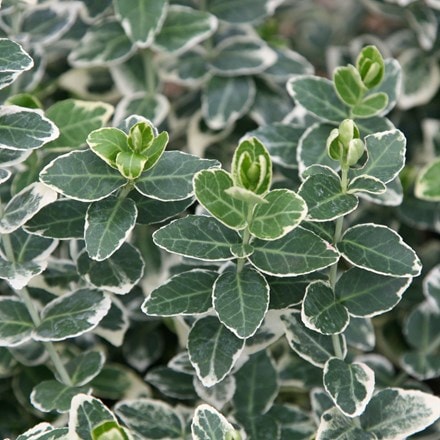Cotoneaster horizontalis
cotoneaster
- 2 litre pot
- £19.99
- In stock (shipped within 2-3 working days)
- 3 × 2 litre pots
- £49.99 £16.66 each
- In stock (shipped within 2-3 working days)
Delivery options
- Standard £5.99
- Position: full sun or partial shade
- Soil: moderately fertile, well-drained soil
- Rate of growth: average to fast
- Flowering period: May
- Hardiness: fully hardy
The glossy dark green leaves of this small, spreading, deciduous shrub are studded with tiny, pinkish-white flowers in May, followed by bright red autumn berries. The leaves turn orange-red before they fall. The branches of Cotoneaster horizontalis form a pretty herringbone pattern, which means the plant looks stunning grown flat against a wall. It is also an excellent groundcover plant for a sunny border.
Please note: This cotoneaster is listed on Schedule 9 of the Wildlife and Countryside Act (1981). It can be planted and contained in private gardens, although it is banned from being planted in the wild in England and Wales.
Please note: This cotoneaster is listed on Schedule 9 of the Wildlife and Countryside Act (1981). It can be planted and contained in private gardens, although it is banned from being planted in the wild in England and Wales.
Plant in well-drained soil in full sun or light shade. Cotoneaster tolerates poor or dry soils once established but benefits from improved soil with added organic matter at planting time. Space well to allow for its spreading habit and air circulation around the base.
Water regularly during the first growing season to help establish a strong root system. Once established, it becomes drought tolerant. Avoid waterlogged conditions.
After flowering, lightly cut back any branches that spoil the symmetry of the plant. In autumn, trim back lightly to reveal fruit and maintain a tidy shape. Avoid hard pruning, as it can reduce flowering and berry production the following season.
Apply a generous 5–7cm (2–3in) mulch of well-rotted compost or manure in spring to boost growth and suppress weeds. Remove any dead, damaged or congested branches in late winter or early spring.
Cotoneaster responds well to gentle shaping, and regular light pruning helps encourage a compact habit and better flowering and fruiting. Great for banks, low hedges or groundcover where minimal upkeep is needed.
Water regularly during the first growing season to help establish a strong root system. Once established, it becomes drought tolerant. Avoid waterlogged conditions.
After flowering, lightly cut back any branches that spoil the symmetry of the plant. In autumn, trim back lightly to reveal fruit and maintain a tidy shape. Avoid hard pruning, as it can reduce flowering and berry production the following season.
Apply a generous 5–7cm (2–3in) mulch of well-rotted compost or manure in spring to boost growth and suppress weeds. Remove any dead, damaged or congested branches in late winter or early spring.
Cotoneaster responds well to gentle shaping, and regular light pruning helps encourage a compact habit and better flowering and fruiting. Great for banks, low hedges or groundcover where minimal upkeep is needed.
- Humans/Pets: Fruit are ornamental - not to be eaten
Goes well with
Hamamelis × intermedia Jelena
3 litre pot | 30 - 40cm tall
£52.99
In stock (shipped within 2-3 working days)
